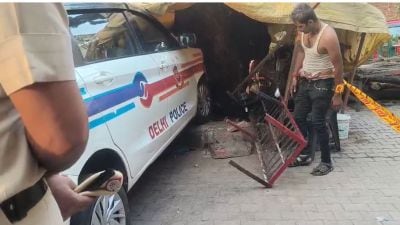Experts submit inputs on proposed Karnataka Education Policy to counter NEP
The Congress government aims to introduce an alternative state policy after withdrawing NEP as per its manifesto.
 This was part of an education convention by the All India Save Education Committee, as the National Education Policy (NEP) 2020 completes three years. (Express Photo/Representational image)
This was part of an education convention by the All India Save Education Committee, as the National Education Policy (NEP) 2020 completes three years. (Express Photo/Representational image) A distinguished panel of education experts on Friday submitted their recommendations on a proposed Karnataka State Education Policy to the state’s education ministers.
This was part of an education convention by the All India Save Education Committee, as the National Education Policy (NEP) 2020 completes three years.
The Congress government aims to introduce an alternative state policy after withdrawing NEP as per its manifesto. Experts focused on a more equal, accessible and constitution-based policy.
Higher education minister Sudhakar said, “There are certain positives and negatives of NEP. We don’t want to rush in withdrawing NEP immediately and introducing a State Education Policy. We need to discuss, debate and deliberate in depth all the aspects of the proposed state education policy and should not hurriedly implement like the BJP. The higher education department needs Rs 2000 crore for infrastructure, faculty recruitment and other needs. The BJP in Karnataka to please their political masters, hurriedly implemented NEP without accounting the department’s challenges. We do not have the necessary infrastructure to implement all the provisions of NEP.”
Former UGC Chairman Sukhdeo Thorat said multidisciplinary courses should not be mandatory. Value education should derive more from the constitution than religion as proposed in NEP, he advised.
Thorat strongly cautioned against Sanskritization of education and four-year degrees, citing unequal access. While multiple entry/exits are good, one-year diplomas could increase dropouts instead of pass/fail, he said.
“NEP is based on good ideas and good practises, but policy lacks in understanding the institutions. The provision of creating a cluster university by deaffiliating colleges from a particular university, for the sake of unitary system, is a welcome move. But I strongly pitch for not changing the location of the colleges and retaining them in the same place as they are. Besides, there is no proper rationale given for the extension of the degree from three to four years. In fact, this provision creates unequal access to economically disadvantaged students who cannot afford for the fourth year,” said Thorat.
Other suggestions included an expert body for policy implementation, promoting English, allowing foreign universities carefully, and a secular, scientific and socially inclusive policy. Early vocational training as per NEP may deprive higher education access and should begin after Class 12, experts said.
Other speakers included A Murigeppa, former vice chancellor, Hampi Kannada University, Michael Williams, educationist and dean of Mount Carmel Schools and Francis Assisi Almeida, secretary, Karnataka Regional Commission for Education, who pitched for formulating a ‘democratic body’ consisting of all stakeholders for implementing a state education policy. Submissions were made to promote English, allowing foreign universities in India with caution, and devising a secular and scientific policy that is available to all classes of people.
“NEP promotes vocational training early on in the learning process. I believe this will push people from socially and economically weak students into menial jobs and will reduce scope of pursuing higher education. It is recommended that vocational training is given after class 12,” said Almeida.
AISEC will submit a detailed memorandum of recommendations to counter NEP and shape an alternative state education policy that suits Karnataka’s needs.







